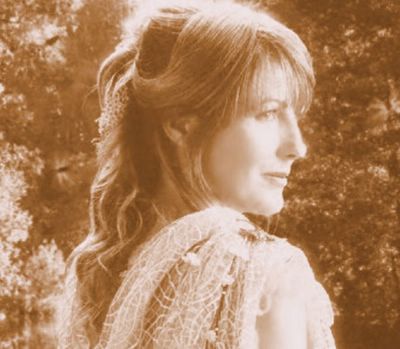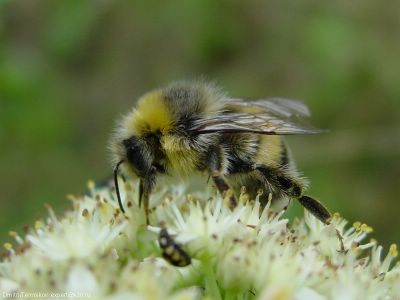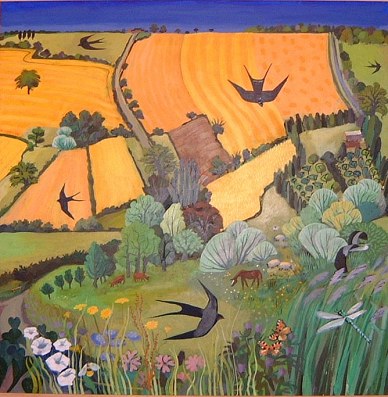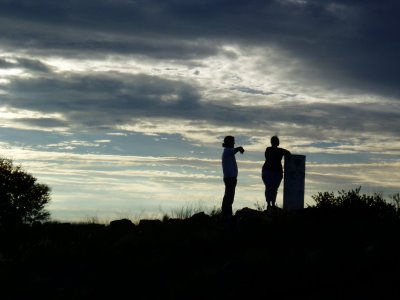My spirit will not haunt the mound
Above my breast,
But travel, memory-possessed,
To where my tremulous being found
Life largest, best.
My phantom-footed shape will go
When nightfall grays
Hither and thither along the ways
I and another used to know
In backward days.
And there you'll find me, if a jot
You still should care
For me, and for my curious air;
If otherwise, then I shall not,
For you, be there.
Hardy's works take place in Wessex (named after the Anglo-Saxon kingdom which existed in the area). One of his distinctive achievements is to have captured the cultural atmosphere of rural Wessex in the golden epoch that existed just before the coming of the railways and the agricultural and industrial revolutions that were to change the English countryside for ever. His works are often deeply pessimistic and full of bitter irony, in sharp contrast to the prevalent Victorian optimism.
My Spirit Will Not Haunt The Mound
Autumn in King's Hintock Park
Here by the baring bough
Raking up leaves,
Often I ponder how
Springtime deceives, -
I, an old woman now,
Raking up leaves.
Here in the avenue
Raking up leaves,
Lords' ladies pass in view,
Until one heaves
Sighs at life's russet hue,
Raking up leaves!
Just as my shape you see
Raking up leaves,
I saw, when fresh and free,
Those memory weaves
Into grey ghosts by me,
Raking up leaves.
Yet, Dear, though one may sigh,
Raking up leaves,
New leaves will dance on high -
Earth never grieves! -
Will not, when missed am I
Raking up leaves.
1901.
He Prefers Her Earthly
This after-sunset is a sight for seeing,
Cliff-heads of craggy cloud surrounding it.
--And dwell you in that glory-show?
You may; for there are strange strange things in being,
Stranger than I know.
Yet if that chasm of splendour claim your presence
Which glows between the ash cloud and the dun,
How changed must be your mortal mould!
Changed to a firmament-riding earthless essence
From what you were of old:
All too unlike the fond and fragile creature
Then known to me ... Well, shall I say it plain?
I would not have you thus and there,
But still would grieve on, missing you, still feature
You as the one you were.
To Lizbie Browne (excerpt)

I
Dear Lizbie Browne,
Where are you now?
In sun, in rain? -
Or is your brow
Past joy, past pain,
Dear Lizbie Browne?
II
Sweet Lizbie Browne
How you could smile,
How you could sing! -
How archly wile
In glance-giving,
Sweet Lizbie Browne!
III
And, Lizbie Browne,
Who else had hair
Bay-red as yours,
Or flesh so fair
Bred out of doors,
Sweet Lizbie Browne?

The Homecoming (excerpt)

Now sit ye by the fire, poppet; put yourself at ease:
And keep your little thumb out of your mouth, dear, please!
And I'll sing to 'ee a pretty song of lovely flowers and bees,
And happy lovers taking walks within a grove o' trees.
Now, don't ye gnaw your handkercher; 'twill hurt your little tongue,
And if you do feel spitish, 'tis because ye are over young;
But you'll be getting older, like us all, ere very long,
And you'll see me as I am--a man who never did 'ee wrong."

The Selfsame Song

(Image: 'Summer Parish' - Carry Akroyd)
A bird bills the selfsame song,
With never a fault in its flow,
That we listened to here those long
Long years ago.
A pleasing marvel is how
A strain of such rapturous rote
Should have gone on thus till now
Unchanged in a note!
- But it's not the selfsame bird. -
No: perished to dust is he . . .
As also are those who heard
That song with me.

A Night in November


I marked when the weather changed,
And the panes began to quake,
And the winds rose up and ranged,
That night, lying half-awake.
Dead leaves blew into my room,
And alighted upon my bed,
And a tree declared to the gloom
Its sorrow that they were shed.
One leaf of them touched my hand,
And I thought that it was you
There stood as you used to stand,
And saying at last you knew!
(?) 1913.
Welcome Home


To my native place
Bent upon returning,
Bosom all day burning
To be where my race
Well were known, 'twas much with me
There to dwell in amity.
Folk had sought their beds,
But I hailed: to view me
Under the moon, out to me
Several pushed their heads,
And to each I told my name,
Plans, and that therefrom I came.
"Did you? . . . Ah, 'tis true
I once heard, back a long time,
Here had spent his young time,
Some such man as you . . .
Good-night." The casement closed again,
And I was left in the frosty lane.


